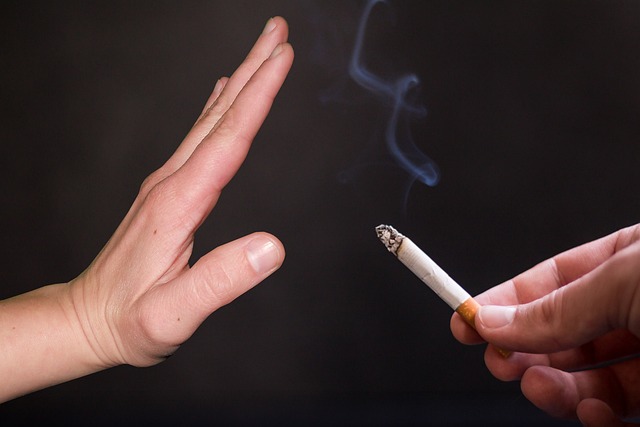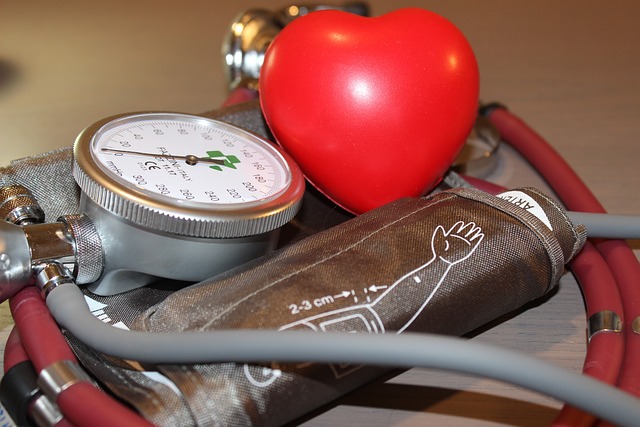Effective Strategies for Managing Blood Pressure Through Lifestyle Changes
Introduction:
High blood pressure, or hypertension, is a prevalent health issue worldwide and a significant risk factor for cardiovascular diseases. While medications are commonly prescribed to control blood pressure, lifestyle modifications can play a crucial role in its management. In this article, we will explore in detail the various lifestyle changes that can effectively help manage blood pressure.
1. Adopting a Healthy Diet:
Maintaining a balanced and nutritious diet is essential for managing blood pressure. Incorporating foods rich in potassium, such as bananas, oranges, spinach, and sweet potatoes, can help counteract the effects of sodium and lower blood pressure naturally. Additionally, reducing the intake of processed foods, saturated fats, and added sugars is crucial for overall heart health and blood pressure management.
Consuming a diet high in fruits, vegetables, whole grains, and lean proteins can provide essential nutrients and antioxidants that support cardiovascular health. Aim for a diet that emphasizes whole foods and minimizes processed and packaged items.
2. Engaging in Regular Physical Activity:
Regular exercise is a cornerstone of hypertension management. Engaging in physical activity aids in fortifying the heart muscle, enhancing blood circulation, and reducing blood pressure levels. Aim for at least 30 minutes of moderate-intensity exercise most days of the week, such as brisk walking, swimming, cycling, or jogging.
Incorporating aerobic exercises, strength training, and flexibility exercises into your routine can provide comprehensive benefits for cardiovascular health. Find activities that you enjoy and can sustain over the long term to make exercise a regular part of your lifestyle.

3. Managing Stress Effectively:
Chronic stress can contribute to elevated blood pressure levels and increase the risk of cardiovascular diseases. Implementing stress management techniques such as deep breathing exercises, meditation, yoga, and mindfulness practices can help alleviate stress and promote relaxation.
Making time for self-care activities, engaging in hobbies, and cultivating supportive relationships can also help reduce stress levels. Prioritize activities that bring you joy and peace of mind to effectively manage stress and support overall well-being.
4. Reducing Sodium Intake:
Excessive sodium consumption is a significant contributor to high blood pressure. The American Heart Association recommends limiting sodium intake to less than 2,300 milligrams per day, with an ideal limit of 1,500 milligrams per day for individuals with hypertension or at risk.
To reduce sodium intake, avoid processed and packaged foods that are high in sodium content. Instead, opt for fresh and minimally processed foods and use herbs, spices, and citrus juices to flavor meals. Be mindful of condiments, sauces, and pre-packaged snacks, as they often contain hidden sodium.
5. Limiting Alcohol Consumption:
While moderate alcohol consumption may have some cardiovascular benefits, excessive drinking can raise blood pressure levels and increase the risk of hypertension. To manage blood pressure effectively, limit alcohol intake to moderate levels.
Moderate alcohol intake is typically delineated as consuming no more than one alcoholic beverage per day for women and up to two beverages per day for men. If you choose to drink alcohol, do so in moderation and be mindful of your overall health and well-being.

6. Quitting Smoking:
Smoking is a significant risk factor for cardiovascular diseases and can elevate blood pressure levels. Quitting smoking is one of the most impactful steps individuals can take to improve their cardiovascular health and manage blood pressure effectively.
Seeking support from healthcare professionals, enrolling in smoking cessation programs, and utilizing nicotine replacement therapies can aid in the quitting process. Surround yourself with a supportive environment and set realistic goals to successfully quit smoking and improve your overall health.
Conclusion:
Managing blood pressure through lifestyle changes is a proactive and effective approach to maintaining cardiovascular health and reducing the risk of heart disease and stroke. By adopting a healthy diet, engaging in regular physical activity, managing stress effectively, reducing sodium intake, limiting alcohol consumption, and quitting smoking, individuals can take control of their blood pressure levels and improve their overall quality of life.
These lifestyle modifications offer sustainable and long-term benefits for blood pressure management and overall well-being. Remember to consult with a healthcare professional for personalized guidance and support on your journey to better blood pressure control. With dedication and commitment to these lifestyle changes, you can achieve optimal blood pressure levels and enjoy a healthier and happier life.

Frequently Asked Questions (FAQ) on Managing Blood Pressure Through Lifestyle Changes:
1. What is hypertension, and why is it essential to manage it?
Hypertension, also known as high blood pressure, is a condition characterized by elevated blood pressure levels. Managing hypertension is crucial as it significantly increases the risk of heart disease, stroke, and other cardiovascular complications, emphasizing the importance of proactive management.
2. How effective are lifestyle changes in blood pressure management?
Lifestyle changes, including dietary adjustments, regular physical activity, stress management techniques, sodium reduction, limited alcohol intake, and smoking cessation, are highly effective in managing blood pressure. These changes address underlying risk factors and promote overall cardiovascular health.
3. What role does diet play in blood pressure management?
A well-balanced diet rich in fruits, vegetables, whole grains, and lean proteins plays a pivotal role in managing blood pressure. Foods high in potassium and low in sodium help counteract the effects of sodium and support cardiovascular health. Conversely, avoiding processed foods, saturated fats, and added sugars is vital for effective blood pressure control.
4. How much exercise is necessary to lower blood pressure?
Engaging in at least 30 minutes of moderate-intensity exercise most days of the week is recommended to lower blood pressure and enhance cardiovascular health. Incorporating diverse aerobic, strength training, and flexibility exercises into one's routine yields comprehensive benefits.
5. What are effective stress management techniques for blood pressure control?
Deep breathing exercises, meditation, yoga, and mindfulness practices are effective stress management techniques that aid in lowering blood pressure and fostering relaxation. Prioritizing self-care activities, pursuing hobbies, and nurturing supportive relationships also contribute to stress reduction.

6. How can sodium intake be reduced in the diet?
To reduce sodium intake, individuals should steer clear of processed and packaged foods known for their high sodium content. Instead, opt for fresh, minimally processed foods, and utilize herbs, spices, and citrus juices for flavoring. Careful scrutiny of food labels is essential to identify hidden sources of sodium.
7. Is moderate alcohol consumption safe for individuals with hypertension?
While moderate alcohol consumption may offer cardiovascular benefits, excessive intake can elevate blood pressure and heighten the risk of hypertension. To manage blood pressure effectively, it's advisable to limit alcohol consumption to moderate levels—one drink per day for women and up to two drinks per day for men.
8. How can smoking cessation aid in blood pressure management?
Quitting smoking is paramount for blood pressure management and overall cardiovascular health improvement. Seeking support from healthcare professionals, enrolling in smoking cessation programs, and utilizing nicotine replacement therapies are effective strategies for successful smoking cessation.
9. Can lifestyle changes alone lower blood pressure without medication?
Yes, for many individuals, lifestyle modifications alone can effectively lower blood pressure and reduce the need for medication. However, it's essential to consult with healthcare professionals to devise a personalized treatment plan tailored to individual health needs and goals.
10. Where can I seek additional guidance on managing blood pressure through lifestyle changes?
Consulting with healthcare professionals, such as primary care physicians or registered dietitians, is recommended for personalized guidance and support on managing blood pressure through lifestyle changes. They can offer tailored recommendations based on individual health circumstances and objectives.
Powered by Froala Editor





Leave a Reply